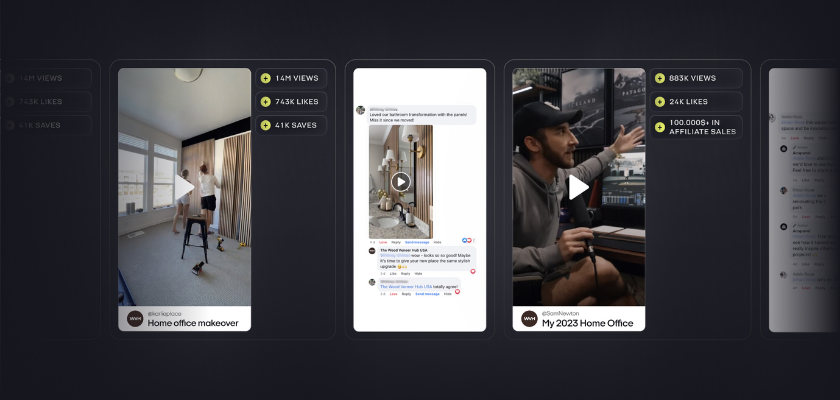Make Your Own Way
My kids and I were at a local coffee shop where I overheard a conversation. A young woman, around 19 entered. She noticed an older man sitting with someone at a table. She approached him and said a friendly...


My kids and I were at a local coffee shop where I overheard a conversation. A young woman, around 19 entered. She noticed an older man sitting with someone at a table. She approached him and said a friendly hello.
The man recognized the young women and they began a brief casual conversation. From what I overheard she had recently graduated from high school and was friends with the man’s daughter. The young woman asked how her friend was doing. The man said she was great, going to the University of Colorado, studying sociology and enjoying having an adventure away from home…”the whole college experience thing”.
He asked the young woman what she was up to. She said she was living at home, working and taking general education requirements at the local community college while she decides exactly what she wants to do for a major. The man said something along the lines of, oh great and the conversation ended pretty quickly after this with the normal nice to see you pleasantries.
After the girl left, the man said to the person he was sitting with, “Community college, what’s with that?”
I’m not sure if I’m expressing the tone of this man’s voice, but it was condescending. He did not view the girl’s chosen life path thus far as a positive one. A couple other snarky comments were exchanged, then the man and his friend’s conversation switched to a different topic.
I couldn’t help feeling a bit upset by the man’s comment about this young woman. Many might feel the same as this man. Thoughts of that poor girl…still living at home, going to community college without a declared major…but let’s stop for a minute and review the facts.
The first girl is attending The University of Colorado paying out of state tuition and room and board of roughly $54,000.00 (yes, I looked it up, I was that curious) to obtain a liberal arts major that could end up requiring additional graduate school education. The college itself is most likely no better than her state school. She’s getting the “college experience” and an “adventure away from home” but at what cost in the long term?
The second girl is attending a local community college costing about $7,000.00 a year. Living at home so she is not paying the cost of a dorm. Completing her Gen. Ed’s, the same thing the other girl is doing but at a fraction of the cost. Most likely Girl #1 will change her major before she graduates, as many college students do at least once during their time in school. At the end of two years this young lady can transfer out of the two-year university to a four year school to finish her degree. Her undergraduate degree will then come from the university that she transfers to at a fraction of the cost.
Knowing these facts, looking beyond one girl attending a community college and one attending a fairly reputable state school who would you say is making the smarter decision?
I’m a little skeptical about that term “college experience”. What exactly does that mean? Choosing to live in a cramped tiny room on a college campus with a roommate you’ve never met and often can’t stand? Sharing a bathroom with a hall full of other people? This often happens no more economically then splitting an apartment with a roommate or two or just living at home for a couple of years to save money. What else does the college experience mean? Making new friends? Joining organizations? Getting involved with things on campus? This can still be done without moving across country. If the goal is simply to live away from home, perhaps take a gap year and explore, but you don’t have to go to college there. Apply to schools and defer a year. Work an entry level job, get some real-life experience and your adventure that way.
Private colleges are a money-making business. We pay to wear brand name clothing…but we also pay a lot for that brand name education. There are definitely the circumstances where the degree is worth the money, but that’s not always the case. Thankfully the stigma of the community college is gradually starting to fade as the cost of traditional four-year colleges increases and student loan debt becomes insane.
There is an unsettling cost of student loans that have previously been labeled as “good debt” for young adults. For certain majors, sure. Engineers and Computer Science majors have the earning potential to easily pay back their loans in a short period of time, but not every student will. An education major is a great example of this. It might not be the best idea for a future teacher to take out $100,000+ in student loans only to start out making $30,000 dollars a year in their profession. This then forces them to get a second job on weekends and evenings just to make rent and pay off the student loans, completely exhausting this educator whose job is to teach, mentor and guide our youth. Do we really want them exhausted, underpaid and overworked?
There are ways around paying that full cost of tuition of a four year degree. The other day while getting my blood drawn the young woman doing it told me her story. It was summer, but in the fall she was going to be a junior at a nearby university. She was studying biomedical science. In one of the classes she had taken for her degree she received the required credentials to be able to do this job. This was now her part time job while continuing college. She planned to go on to graduate school to become a physicians assistant. To apply she had to have a certain number of contact hours working in the medical field. She was going to be able to use the time she was working to fulfill these hours, all the while earning money doing it and working in a field she enjoyed and was applicable to her major.
In a former life, pre-children, I was a high school counselor. I began the job with an every student must go to a four-year college attitude. Within only a couple of months my attitude drastically changed. I saw the costs of many colleges, I saw first-hand where a lot of 17 or 18 year old seniors are in there maturity level and I realized there is no one size fits all formula. I started exploring gap year programs, community colleges, trade schools, internships, military, and realized how many other amazing options are out there.
I think we should help every graduating senior stop and look at things in the big picture. What’s the end goal? What are they interested in, good at? What puts them in the highly sought out “flow state” and work backwards from there. Maybe this means a traditional path and maybe it doesn’t. If a student has no answers to any of these above questions I see nothing wrong with taking a little extra time to figure it out. Proceed like they are applying to college and then defer a year. Perhaps take some time to work, travel (cheaply), volunteer, but have a plan in place for that gap year.
There is no arguing that a college degree can benefit you in the long run with more earning and job opportunities; but there are alternative ways to get there. We have set such a traditional formula in place for success that we expect our high school graduates to follow, but what if we stopped and asked them a couple of questions…
What’s your dream for your life? What would you do if you hadn’t been told what you should do your entire life…if there wasn’t already a formula in place for you to follow? What if we told them it was ok to make their own way.
***
About the Author: Nikki Cox is a mom of two striving to live life with intention. Find her at Lovelylucidlife.com.

 FrankLin
FrankLin 












![Trading Journal: 5 Most Efficient Ones Analyzed [2021]](https://www.dumblittleman.com/wp-content/uploads/2021/10/Best-Investment-Newsletter-8.png)


















